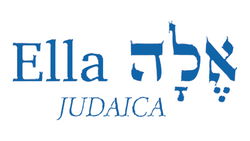
When we sit down at the table, we first make Kiddush, Wash our Hands, and make Motzi (Bread Blessing) over some delicious challah. Then, we get down to business with a variety of symbolic foods:
1. Tamarim – Dates. This relates to the word tam, meaning “to end.” Before eating the date, we say the blessing over fruits, borei pri ha’etz. Then, we take a second piece of the fruit, and recite an additional benediction: “May it be Your will, our G-d and G-d of our ancestors, that there comes an end to our enemies and those who wish evil upon us.”

2. Rubiyah/Lubiyah - Small Beans. This relates to the words rov (“many”) and lev (“heart.”) We say the blessing over vegetables, borei pri ha’adamah and take a bite. Then, we recite again, “May it be Your will, our G-d and G-d of our ancestors, that our merits shall multiply and that You will keep us in Your heart.”

3. Karti – Leeks. This is related to the word karet, “to cut.” We hold up our leeks and proclaim, “May it be Your will, our G-d and G-d of our ancestors, that our enemies and those who wish evil upon us shall be cut down.”

4.Salka – Beets. This is linked to selek, “to depart.” We hold up our beets and proclaim, “May it be Your will, our G-d and G-d of our ancestors, that our enemies and those who wish evil upon us shall depart.”
![]()
5. Kera – Gourds. This is connected to kareh “to rip apart” as well as karah “to announce.” We pick up our piece of gourd and say, “May it be Your will, our G-d and G-d of our ancestors, that our foul treatments should be ripped away and that our merits should be announced before you.”

6. Rimon – Pomegranate. Tradition teaches us that pomegranates are reported to have as many as 613 seeds, mirroring the exact number of mitzvot in the Torah. We enjoy the sweet and tart flavor of the fruit as we proclaim, “May it be Your will, our G-d and G-d of our ancestors, that we shall be filled with mitzvot like a pomegranate is filled with seeds.”

7. Tapuach B’Dvash - Apple with Honey. This is a well-known combination across all Rosh Hashana customs, which is paired with the special proclamation, “May it be Your will, our G-d and G-d of our ancestors, that You will grant us anew year that is good and sweet like honey.”

8. Rosh – Head. Traditionally many people use the head of a ram, but another kosher animal or fish is also very common. In Israel, many seders feature fish heads. On this we say, “May it be Your will, our G-d and G-d of our ancestors, that we should be a head and not a tail.”



